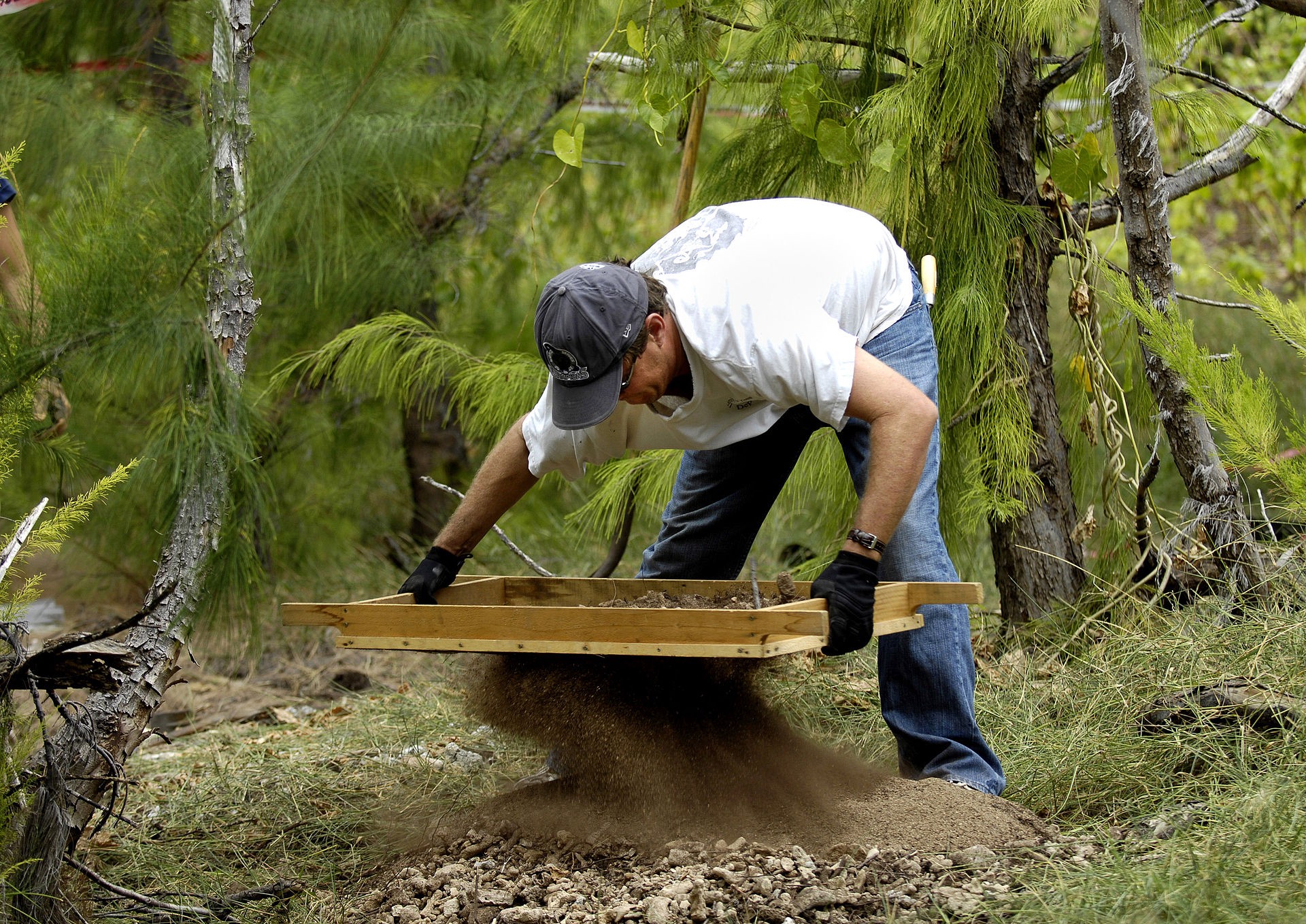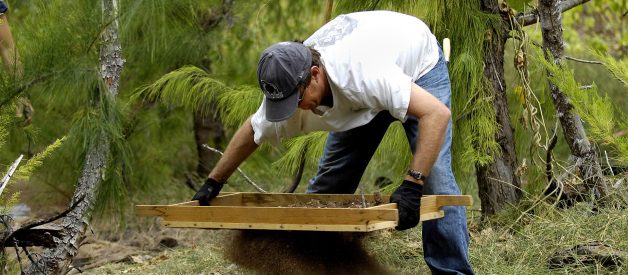Archaeology. It?s one of those rare professions that capture the imaginations of children and adults alike. Even before such staples of Western zeitgeist as Indiana Jones or Tomb Raider, the study of ancient cultures captivated millions. A mix of treasure hunting, science, and adventure, with a dash of respectability managed to form a profession of it sometime between searching for the Seven Cities of Gold and opening the tomb of King Tutankhamun.

It remained a realm difficult to make a living in, however. Outside of the gray market for antiquities, only the largest of universities and museums could afford ? or need ? to staff archaeologists. And those tended to be polymaths, as most scientists are in the infancy of any given discipline. It is only a fairly recent development that archaeologists have specialized in more than a regional cultural area. Where before there were Mayanists, Egyptologists, Sinologists, Classicists, and the like, today there is practical specialization by type of tasks performed and not just background familiarity with the history of a region. Now an archaeologist could have specialized experience and expertise in such arcane skills as paleoethnobotany, dendrochronology, isotope analysis of skeletal remains, underwater excavation, or battlefield archaeology.
But by and large, the overwhelming majority of practicing archaeologists don?t work in an academic setting, and need a far broader familiarization of skills. In the private sector, the term Cultural Resource Management (CRM)is a catch-all used for most of those archaeologists, who can be employees at large, publicly traded multinational firms or one-person independent contractors or anything in between. There are any number of excellent textbooks, courses, and even online primers about how to embark upon the path of the academic archaeologist.
But to date, there has been limited guidance available for those wishing to pursue a career in the CRM industry. Given that so few jobs are available within the academic realm ? and even fewer that are full-time or pay enough to raise a family or live a decent lifestyle ? this is a tremendous oversight on the part of the archaeology profession. That lack is exacerbated by the fact that few archaeology classes taught at the university level, quite frankly, address much of relevance to the CRM archaeologist.
In some ways, this may reflect old biases that are finally beginning to fade away as positions in universities and museums become harder and harder to come by. There was a time that the perception was of a divide between CRM archaeologists and (as one professor once told me) ?the real archaeologists.? Thankfully, those days are falling further and further behind us as a new generation of archaeologists takes to the field, as well as a growing realization that those in the CRM industry generally have superior fieldwork techniques, whatever they might be lacking in research abilities or advanced degree credentials. Coupled with the intense pressure that career archaeologists face on the job market for university or museum positions, there has been much more cross pollination as those previously in one half of the archaeology job market have ended up in the other.
CRM is, thankfully, alive and well, at least in the United States. While there are sizable CRM professions in other countries ? especially Commonwealth countries such as the UK and Canada ? this publication (don?t forget to follow it!) will largely refer to what is needed in the American job market. Many of the lessons are easy to transfer to other countries, but due to the differing regulatory regimes that create demand for the preservation or documentation of threatened cultural resources, an archaeologist working outside the United States should do their own due diligence when considering some advice in this publication.
This publication is meant to be a practical guide, and where possible will be as specific as possible in a ?how to? sort of manner. You are highly encouraged to print out useful articles and put them into a binder to take it with you to have on hand in the work vehicle or office, and writing in the margins is usually a sign that a piece of writing is useful to you. Topics will be divided into small, very specific sections to make it easier to use as a reference when looking up tips on, say, doing hand-drawn cartography or how to look for work. It is assumed that most readers have or are undertaking a four-year degree in anthropology or archaeology, though many basic tasks will be covered as well ? such as using a compass ? that in my own experience are often lacking in professional archaeologists for the simple reason that no one ever thought to teach it to students.
The first major undertaking of this publication will cover how to find work as a practicing CRM archaeologist. It will focus on the individual looking for work both temporary (?shovel bumming?) and full time. There will also be a discussion of how to bid on a project for those who decide to hang out their own shingle as a contractor, and how to manage crews and logistics in the field.
The second major goal will be a collection of how-to advice for various field and research skills. These will be things such as laying in a straight transect, easy rules of thumb to identifying some kinds of artifacts, what kinds of equipment save time, etc.
Is CRM right for you?
Before going any further, it?s worth a short mental exercise to determine if the cultural resource management industry is for you. For those who are both good at it and enjoy it, the job as a private sector archaeologist can be both fulfilling and financially rewarding.
Unfortunately, many people ill-suited to the endeavor jump into it with both feet simply because they liked their archaeology classes in college and now need to figure out how to use that anthropology degree. Hopefully you either like doing archaeology for clients in your own country or are still at the stage where you are in college trying to settle upon a prospective career.
One of the first questions the latter group have asked me over the years needs to be gotten out of the way first. How much student loan debt is reasonable to pursue a career in archaeology (either academic or CRM)? Almost none.
You won?t know for certain that you can make much money in this industry until you?re in it, and by then it?s too late. I?ve met people with $100,000 in student loan debt to make $12/hour at the bottom rung of the career ladder. Read that sentence again. Don?t let that be you.
Now that?s out of the way, let me assure you that if you?re savvy, disciplined about both doing work and finding it, and have half a brain between your ears, you can make a middle-class living in CRM.
No, the real caveat to a career in CRM is the constant travel. To someone young and just out of college, this is a feature, and not a bug. And for many, it will always be a feature. But as you get older and start to think about finding a partner or starting a family ? or even just having a regular trivia night in your hometown bar with your friends ? this can wear on even the most die-hard of archaeologists.
The nature of the job is fairly constant travel unless you?ve either found yourself riding a desk ? and usually not for much more pay ? or you manage to work locally. Exclusively working at local gigs is usually a recipe for being a part-time archaeologist. Which is fine, as long as you want that. But be aware you?ll at least be away most weeks during the work week, even if you?re home on the weekends. The only real way around this is to either write reports or run the diagnostic lab for your company or organization. So make sure you?re not a homebody before embarking upon an archaeology career.
If, however, you enjoy meeting new people every few months as you cycle through projects, have a fascination with learning about obscure sites from various time periods of American history and prehistory, and get a thrill out of traveling to big cities and small towns on your employer?s dime, then CRM is a good choice for you, and you should follow the hard-gleaned insights that are coming to this publication.
Next: Getting A Job In Cultural Resource Management: A Step-By-Step Guide


